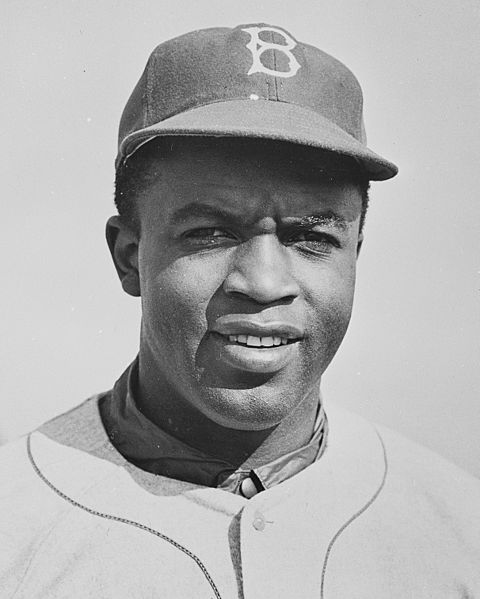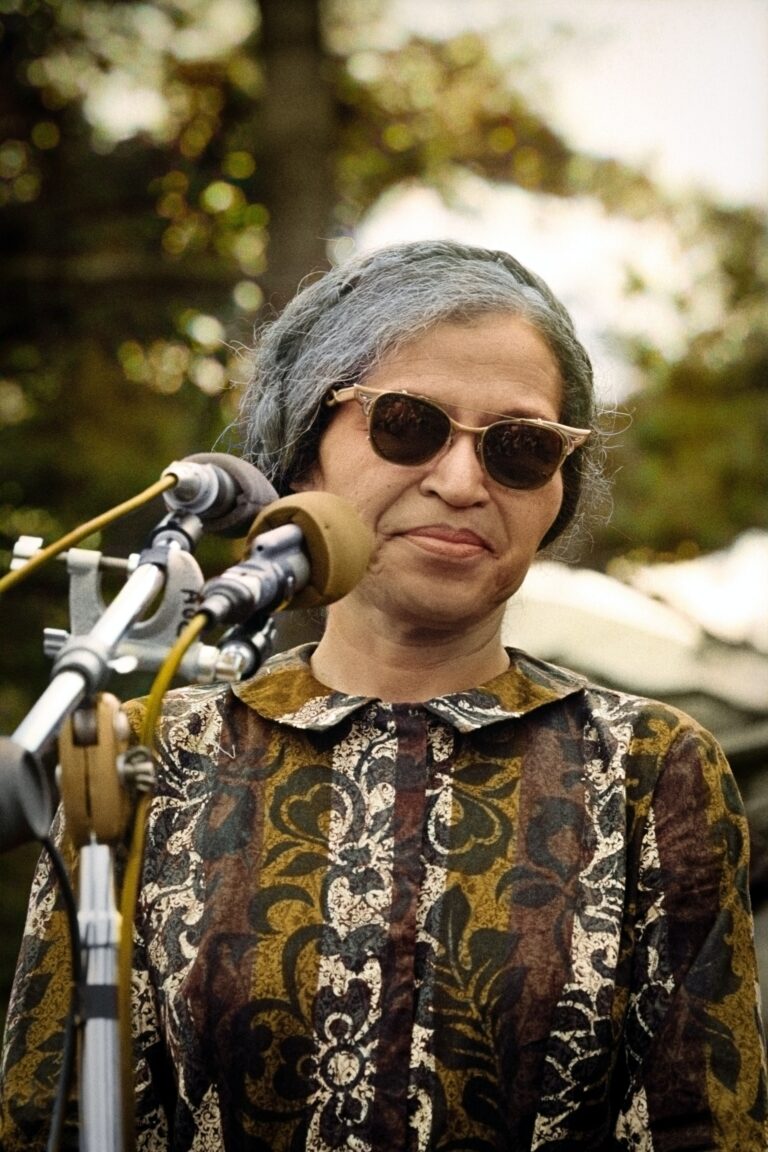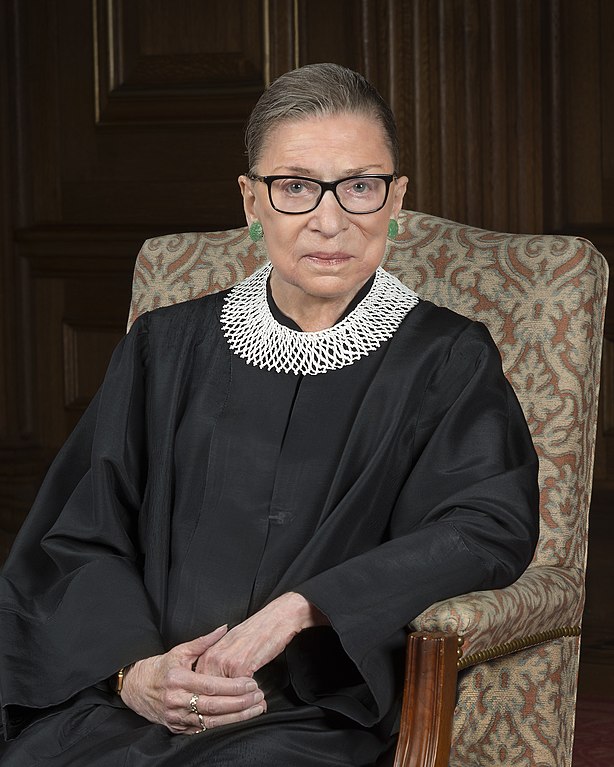Breaking Barriers: Leadership Lessons from the Life of Jackie Robinson

Stepping Up to the Plate: Unveiling the Leadership Saga of Jackie Robinson
The story of Jackie Robinson, the first African American to play Major League Baseball in the modern era, is one that reverberates across the annals of American history. Not only did he shatter the color barrier in one of America’s most beloved sports, but he also did so with an unwavering determination, unparalleled grace under pressure, and an indomitable spirit that solidified his legacy as a stalwart leader. Robinson’s story transcends the diamond, serving as a profound lesson in leadership both within and beyond the confines of sports.
The aim of this article is to delve deeper into the life and times of Jackie Robinson, unraveling the intricate tapestry of experiences that shaped him as a leader. We will explore his early life, his groundbreaking athletic career, and his significant contributions to society, all through the lens of leadership.
Leadership, in its essence, is not merely about holding a position of power, but rather about inspiring others, effecting change, and standing strong in the face of adversity. It’s about maintaining one’s integrity when the easier path would be to compromise. It’s about being humble in victory and resilient in defeat. Jackie Robinson’s life embodies these leadership values, and his legacy continues to inspire leaders across various fields.
Through an exploration of Robinson’s life, we will unearth key leadership lessons that remain relevant today. We will look at his courage and persistence in breaking racial barriers, his integrity in standing up against discrimination, his humility in the face of extraordinary achievements, and his resilience amidst personal and professional challenges. Further, we will delve into his influential role in initiating change within and beyond the realm of sports.
We will also recount powerful anecdotes from Robinson’s life that exemplify his leadership. From his signing with the Brooklyn Dodgers, a courageous step that forever altered the course of baseball, to his grace under immense pressure during the 1947 World Series, and his tireless advocacy for social change in his post-baseball career – these stories form a compelling narrative of a man who led by example.
Finally, we will reflect upon Robinson’s enduring legacy, examining how his life and leadership continue to resonate in our present-day context. We will discuss the ongoing impact of his barrier-breaking efforts, his influence on today’s athletes and leaders, and the lessons contemporary leaders can draw from his life.
In essence, this article is a tribute to Jackie Robinson, the leader – a figure who used his platform not just to excel in his sport, but to drive societal change. As we navigate through his story, the hope is that readers will find inspiration, gain insights, and draw lessons that can be applied in their own leadership contexts. After all, leadership is not confined to boardrooms or political offices; it is evident in all walks of life. And the life of Jackie Robinson offers one of the most compelling leadership narratives of the twentieth century.
Background
Jack Roosevelt Robinson, better known as Jackie Robinson, was born on January 31, 1919, in Cairo, Georgia. The youngest of five children, Robinson’s early life was marked by hardship and adversity. His father abandoned the family when Robinson was still an infant, leaving his mother, Mallie Robinson, to single-handedly raise her children in the face of dire economic conditions and the palpable racial prejudice of the South.
In 1920, determined to provide a better life for her children, Mallie Robinson made the brave decision to move her family to Pasadena, California. This move to the West Coast marked the beginning of a new chapter in young Robinson’s life. It was in Pasadena that Robinson’s athletic prowess began to shine, providing him a platform to display his leadership traits even at a young age.
Robinson’s athletic career began at John Muir High School where he excelled in various sports – football, basketball, track, and baseball. Robinson’s performance was remarkable, and his abilities were undeniable. But his athletic prowess was not the only thing that set him apart. Even in his high school years, Robinson exhibited the qualities of a leader – his determination, his unyielding spirit, his ability to motivate his teammates, and his strength in overcoming adversity.
After graduating from high school, Robinson moved on to Pasadena Junior College, continuing his multi-sport athletic career. Again, he demonstrated not only his athletic abilities but also his leadership qualities. Robinson’s time at Pasadena Junior College was marked by significant achievements, but it was also during this time that he had his first significant encounters with racial prejudice, an experience that would shape his future in profound ways.
In 1939, Robinson transferred to the University of California, Los Angeles (UCLA), becoming the first athlete in the university’s history to win varsity letters in four sports. At UCLA, he encountered even more racial obstacles. Despite his stellar performance on the field, Robinson was often excluded from certain hotels and restaurants when traveling with his team, experiencing firsthand the discriminatory practices prevalent during that era. Yet, he remained undeterred, displaying an early sense of resilience and an unwavering commitment to his principles.
Robinson left UCLA just shy of graduation due to financial difficulties. He then briefly played football for the Honolulu Bears before the onset of World War II. Robinson was drafted into the U.S. Army in 1942, where he faced racial discrimination again. His courage and commitment to equality were evident when he refused to move to the back of a segregated army bus, leading to a court-martial trial which he was acquitted of on all charges.
In the years that followed, Robinson would continue to encounter and overcome numerous obstacles, ultimately culminating in his historic entry into Major League Baseball. His early life experiences, both on and off the field, shaped him, equipping him with the resilience, determination, and integrity that would define his leadership style in the years to come. His path was not easy, but it was this journey that prepared him for the role he was to play – a role that extended beyond the baseball diamond, reaching into the very heart of American society.
Breaking Color Barriers
The 1940s was a tumultuous period in American history, marked by World War II and the beginnings of the Civil Rights Movement. In the midst of this, America’s pastime, baseball, was still ensnared in the grasp of segregation. Despite the immense talent present in the Negro Leagues, the Major League Baseball remained an exclusively white domain. That was until the courageous entry of Jackie Robinson into the scene.
In 1945, following his military service, Robinson was playing for the Kansas City Monarchs in the Negro Leagues when he caught the eye of Branch Rickey, the general manager of the Brooklyn Dodgers. Rickey was on a mission to integrate Major League Baseball, and in Robinson, he found a player who had not only exceptional athletic talent but also the strength of character to endure the immense challenges that were sure to arise.
Robinson’s signing with the Brooklyn Dodgers was a pivotal moment in sports history. The decision was met with both support and vehement opposition. Many players and fans were resistant to the idea of an integrated baseball league, and Robinson faced immense pressure and blatant racism. Despite this, he agreed to Rickey’s condition that he wouldn’t retaliate to the racial slurs and discrimination he would inevitably face. This was a true test of Robinson’s leadership, demonstrating his strength, courage, and deep commitment to a cause greater than himself.
On April 15, 1947, Robinson made his debut for the Brooklyn Dodgers, forever changing the face of baseball. His presence on the field was a powerful statement against segregation and racial prejudice. But breaking the color barrier was just the beginning. Robinson was acutely aware that his performance on the field would either open doors for other African American players or potentially shut them. The weight of this responsibility was immense, and Robinson bore it with remarkable grace and resilience.
The backlash Robinson faced was severe. He was subjected to racial slurs, threats, and even physical violence both on and off the field. Yet, he held his ground, demonstrating an admirable level of restraint and resilience. His commitment to non-retaliation didn’t mean he was passive. Instead, he responded by excelling at his game, letting his performance do the talking. His first season with the Dodgers saw him win the inaugural Rookie of the Year award, a testament to his exceptional skills and determination.
Robinson’s impact reached far beyond his team. He changed the way the sport was played and perceived, forcing players, fans, and the administration to confront their prejudices. His presence on the field challenged the status quo and sparked conversations about race and equality in America. Robinson’s journey to Major League Baseball was not just about integration; it was about initiating change, challenging deeply entrenched societal norms, and leading the way towards a more equal and inclusive future.
In breaking the color barrier, Jackie Robinson demonstrated the essence of transformational leadership. He faced adversity head-on and used his platform to effect meaningful change. He stood up against injustice, not with retaliation, but with poise, dignity, and an unwavering commitment to his principles. His leadership journey serves as a poignant reminder of the power of resilience, courage, and conviction in the face of adversity.
Leadership on the Field
Jackie Robinson’s entry into Major League Baseball (MLB) was a groundbreaking moment, but his leadership journey was only just beginning. His time on the field was marked by both exceptional athletic performance and an unwavering commitment to challenging racial prejudice.
As a player, Robinson was nothing short of remarkable. He was an all-around athlete with exceptional skills in batting, base running, and fielding. His agility, speed, and strategic mindset changed the dynamics of the game, introducing an aggressive style of play that had a significant impact on how baseball was played. In his ten-year career with the Brooklyn Dodgers, Robinson had a batting average of .311, was selected for six consecutive All-Star games from 1949 to 1954, and won the Most Valuable Player award in 1949.
However, Robinson’s achievements on the field were not just a testament to his athletic prowess, but also to his resilience and fortitude. Every time he stepped onto the field, he faced racial slurs, hate mail, and even physical violence from opposing players and spectators. However, he remained committed to his cause and persevered, letting his performance speak for itself.
His leadership was also evident in the way he influenced his team. Initially, several players on the Brooklyn Dodgers objected to Robinson’s inclusion in the team due to his race. However, Robinson’s exceptional skills, determination, and resilience earned him the respect of his teammates. He became an integral part of the team, not just because of his performance, but also because of his ability to unite his team towards a common goal.
Robinson’s influence wasn’t limited to his own team. He changed the way opposing teams and spectators perceived African American players. His performance on the field was so compelling that it forced even those who were initially resistant to his presence to acknowledge his skills. Robinson’s presence in MLB led to the gradual integration of other African American players into the league, marking the beginning of a new era in baseball.
Robinson’s leadership on the field was defined by his courage, resilience, and the ability to influence and inspire others. He led by example, demonstrating that excellence can be achieved regardless of one’s racial background. His story serves as a powerful reminder that leadership is not just about personal success, but about paving the way for others and creating an environment where everyone has an equal opportunity to succeed.
In the face of immense adversity and pressure, Robinson remained committed to his principles and showed remarkable mental strength. He didn’t let the hostile environment affect his performance; instead, he rose above it and continued to excel, embodying the essence of resilience and mental strength.
Robinson’s leadership journey on the field serves as a powerful lesson for leaders in all fields. It demonstrates that leadership is about staying true to one’s principles, even in the face of adversity. It’s about demonstrating resilience, influencing others through one’s actions, and effecting change, regardless of the challenges that come one’s way. Above all, it’s about leading by example and inspiring others through one’s actions.
Leadership Off the Field
Jackie Robinson’s leadership was not confined to the baseball diamond; it extended into all aspects of his life. His commitment to social justice, his influence in the Civil Rights Movement, and his endeavors in business and community service are testimonies to his extraordinary leadership off the field.
After retiring from baseball in 1956, Robinson continued to break barriers and challenge societal norms. He became the first African American television analyst in Major League Baseball and the first African American vice president of a major American corporation when he took a position at Chock Full o’ Nuts, a coffee company. In both these roles, Robinson brought the same determination and integrity that marked his baseball career, breaking down barriers and opening doors for those who would come after him.
Robinson was also an outspoken advocate for civil rights. He used his platform to address racial injustice and economic disparities faced by African Americans. He was an active participant in the Civil Rights Movement, associating with leaders like Martin Luther King Jr. and Malcolm X. In 1962, Robinson was inducted into the Baseball Hall of Fame, and he used his induction speech to speak about the lack of Black managers in Major League Baseball, showcasing his relentless pursuit of equality and justice.
Moreover, Robinson believed in the power of political action to effect change. He was politically active, using his influence to support candidates and policies that he believed would advance the cause of civil rights. His involvement in politics was driven by his conviction that African Americans should have a voice in the political process, further highlighting his commitment to equality and justice.
Robinson’s post-baseball career also saw him deeply involved in community service. He established the Jackie Robinson Foundation in 1973, which provides scholarships and mentoring for minority students. Through the foundation, Robinson continued his commitment to breaking down barriers and providing opportunities for the underprivileged, further extending his influence and leadership.
Throughout his life, Robinson demonstrated that leadership extends beyond one’s primary profession or area of expertise. He leveraged his influence to address social injustices and create opportunities for marginalized communities. He didn’t shy away from challenging conversations and actions, even when they were uncomfortable or unpopular. His dedication to social justice, his commitment to community service, and his involvement in politics all underscore his multifaceted leadership.
Jackie Robinson’s leadership off the field serves as an essential reminder for leaders across different spheres. It emphasizes the importance of using one’s platform to effect positive change, standing up for justice, and being involved in one’s community. It shows that leadership is not just about individual success, but about making a difference in the lives of others and contributing to the betterment of society. His life and work continue to inspire and guide leaders, echoing his enduring message of courage, integrity, and service.
Legacy and Leadership Lessons
Jackie Robinson’s life and legacy continue to resonate, inspiring countless individuals around the world. His impact goes far beyond baseball, serving as a potent reminder of what one can achieve with courage, determination, and integrity. The leadership lessons we can glean from Robinson’s life are timeless and universally applicable.
1. Courage in the Face of Adversity
Robinson’s life was a testament to the power of courage. He had the audacity to break barriers in a society deeply entrenched in racial prejudice. His bravery was not just about stepping onto the baseball field as the first African American player in the MLB; it was about bearing the weight of immense pressure and hostility with dignity and grace. Leaders can learn the importance of courage from Robinson’s life – courage to challenge the status quo, courage to stand up for what is right, and courage to persist despite adversity.
2. Resilience and Determination
Throughout his life, Robinson displayed remarkable resilience. Whether it was the racial slurs he endured on the baseball field, the discrimination he faced off it, or the personal trials he went through, Robinson remained undeterred. His unwavering determination to excel in his sport and effect societal change serves as an inspiration for leaders to remain steadfast in the face of challenges and obstacles.
3. Integrity and Authenticity
Robinson was a man of integrity. He stood up for his beliefs, even when it was not easy or popular to do so. He remained authentic, refusing to compromise his principles. This authenticity and integrity were evident in his role as a player, an advocate for civil rights, and a community leader. For contemporary leaders, Robinson’s life underscores the importance of leading with integrity and staying true to one’s values.
4. Impact and Influence
Robinson understood the power of influence and used his platform to effect change. He did not shy away from using his voice to advocate for social justice and equality. As a leader, Robinson teaches us that leadership is not just about holding a position of power; it’s about using that power to make a positive impact on others and society.
5. Servant Leadership
Despite his fame and success, Robinson never forgot his roots or the community from which he came. He was deeply involved in community service and actively worked to provide opportunities for the underprivileged. His life exemplifies servant leadership, reminding us that true leaders serve their communities and strive to uplift others.
In conclusion, Jackie Robinson’s legacy is a rich tapestry of leadership lessons. His life serves as a powerful narrative of courage, resilience, integrity, influence, and service. Robinson was not just a groundbreaking athlete; he was a transformational leader whose impact continues to reverberate in our society. His story serves as an enduring source of inspiration, reminding us of the profound impact one individual can have when they lead with courage, integrity, and a commitment to serving others.
Applying Robinson’s Leadership Lessons Today
In a world that continues to grapple with complex challenges—be they social, economic, or environmental—the leadership lessons we can glean from Jackie Robinson’s life and career are more relevant than ever. As we navigate an era characterized by rapid change and uncertainty, the principles that guided Robinson offer a roadmap for effective, ethical, and transformative leadership.
1. Leading with Empathy and Inclusivity
One of Robinson’s most profound impacts was his role in advancing racial integration and equality. His courage to break the color barrier in Major League Baseball challenged societal norms and sparked conversations about race and inclusivity. Today’s leaders can draw from Robinson’s example, championing diversity and inclusion in their own organizations. Leading with empathy and inclusivity, and fostering an environment where all voices are heard and valued, can drive innovation, improve performance, and make organizations more resilient.
2. Resilience in the Face of Challenge
Robinson’s resilience in the face of severe adversity is a powerful lesson for today’s leaders. In an increasingly volatile and uncertain world, the ability to remain resilient, to adapt and persevere despite challenges, is crucial. Leaders can cultivate resilience by maintaining a positive outlook, embracing change, and viewing challenges as opportunities for growth and learning.
3. Ethical Leadership and Integrity
Robinson’s unwavering commitment to his principles, even in the face of immense pressure, underscores the importance of ethical leadership. Today, as public trust in institutions wavers and demands for corporate responsibility increase, leading with integrity is more important than ever. Leaders can honor Robinson’s legacy by making decisions that are not only good for business but also ethically sound and beneficial for society.
4. Leveraging Influence for Positive Change
Robinson used his platform to advocate for civil rights and social justice. He understood the power of his influence and used it to effect positive change. Similarly, today’s leaders have a responsibility to use their influence to address pressing societal challenges, from social inequality to climate change. This might involve advocating for sustainable business practices, promoting social justice, or investing in community development.
5. Investing in the Future
Through the Jackie Robinson Foundation, Robinson demonstrated his commitment to investing in the future. He understood the transformative power of education and the importance of providing opportunities for the underprivileged. Today’s leaders can emulate this by investing in the development of their people and communities. This could involve providing educational opportunities, promoting professional development, or supporting community initiatives.
The leadership lessons from Jackie Robinson’s life are timeless and universally applicable. As we navigate the complexities of the modern world, his legacy serves as a beacon, illuminating the path towards effective, ethical, and transformative leadership. Whether we are leading a team, an organization, or a social movement, we can draw inspiration from Robinson’s courage, resilience, integrity, and commitment to service. His story reminds us that true leadership involves not just achieving personal success, but also contributing to the greater good and paving the way for others to succeed.
The Enduring Spirit of Jackie Robinson – A Leadership for All Times
While Jackie Robinson’s life story is firmly rooted in a specific era, his legacy extends far beyond the confines of his time. His life offers a timeless narrative of leadership that continues to inspire and guide us today. Robinson’s example underscores that the best leaders do not simply adapt to the times—they shape them.
1. Universal Principles of Leadership
Robinson exemplified universal principles of leadership—courage, resilience, integrity, and service—that remain as relevant today as they were in his time. His life teaches us that leadership isn’t about holding a title or a position; it’s about taking a stand, making a difference, and leaving a legacy. Robinson’s leadership was rooted in a deep-seated commitment to these principles, and he never wavered from them, regardless of the challenges he faced. This steadfast adherence to core values is a crucial lesson for leaders in all fields.
2. Leadership as a Continuous Journey
Robinson’s story also reminds us that leadership is a continuous journey, not a destination. From his early days in the Negro Leagues to his groundbreaking career in Major League Baseball, and later his work in the Civil Rights Movement and his contributions to the community, Robinson continually evolved and grew as a leader. This growth mindset, a willingness to learn and adapt, is another essential attribute for modern leaders.
3. Leadership and Social Responsibility
Moreover, Robinson’s life underscores the inextricable link between leadership and social responsibility. He leveraged his platform to advocate for racial equality, demonstrating that true leadership extends beyond individual success to contributing to the welfare of society. In today’s world, where leaders are increasingly expected to address social and environmental issues, Robinson’s commitment to social justice serves as a powerful example.
4. Leadership and Legacy
Finally, Robinson’s legacy emphasizes the enduring impact of leadership. More than seven decades after he broke the color barrier in Major League Baseball, Robinson’s influence is still felt, not just in the world of sports, but in all spheres of society. His life is a testament to the idea that leadership is ultimately about the legacy one leaves behind—the changes one initiates, the lives one touches, and the difference one makes.
The story of Jackie Robinson is not just the story of a trailblazing athlete or a pioneering civil rights advocate—it’s the story of a remarkable leader. His leadership transcended the baseball field and permeated all aspects of his life, leaving a legacy that continues to inspire and guide us. As we navigate our own leadership journeys, we can draw upon Robinson’s enduring spirit, reminding ourselves of the transformative power of courage, resilience, integrity, and service. His story teaches us that we all have the potential to be leaders, to make a difference, and to leave a legacy—just as Jackie Robinson did.
Running the Bases: Embracing the Leadership Legacy of Jackie Robinson
In examining the life of Jackie Robinson, we have journeyed through a narrative of extraordinary leadership that transcends time and space. We have seen how Robinson’s leadership was shaped by his actions both on and off the baseball field, how he used his platform to effect societal change, and how he embodied timeless leadership values such as courage, resilience, integrity, and service.
From his courageous entry into Major League Baseball, to his resilience in the face of adversity, to his post-baseball career as a civil rights advocate and business leader, Robinson demonstrated a leadership style that was far ahead of his time. He showed us that leadership isn’t just about breaking barriers; it’s about the courage to stand up for what is right, the resilience to persevere in the face of adversity, and the integrity to stay true to one’s principles.
Robinson’s leadership journey also teaches us the power of influence. His actions on the field influenced the way the game was played, the way his teammates thought, and ultimately the way society perceived racial integration. Off the field, his advocacy for civil rights, his involvement in politics, and his commitment to community service influenced the course of history and continue to shape our understanding of what it means to be a leader.
Furthermore, Robinson’s life underscores the concept of servant leadership. Despite facing immense personal challenges, he never lost sight of his commitment to serving others. Through his foundation, he continued to create opportunities for underprivileged individuals, demonstrating that true leadership involves using one’s influence to benefit others.
Finally, Robinson’s legacy is a powerful testament to the enduring impact of leadership. Even decades after his death, his influence continues to be felt in the world of sports, civil rights, and beyond. His life is a reminder that leadership is not just about what we achieve in our lifetimes, but about the legacy we leave for future generations.
In today’s world, as we grapple with complex societal challenges and navigate the ever-changing landscape of leadership, the lessons we can glean from Jackie Robinson’s life are more pertinent than ever. His story reminds us that true leadership is about courage, resilience, integrity, and service. It challenges us to ask ourselves: How can we use our influence to effect positive change? How can we lead with integrity and authenticity? How can we serve our communities and contribute to the greater good?
As we reflect on the leadership legacy of Jackie Robinson, let us not just admire his extraordinary life, but let us also be inspired to embody his principles in our own leadership journeys. For it is in embracing these values that we can truly honor Robinson’s legacy and continue his work of breaking barriers, challenging norms, and creating a more inclusive and equitable world.





